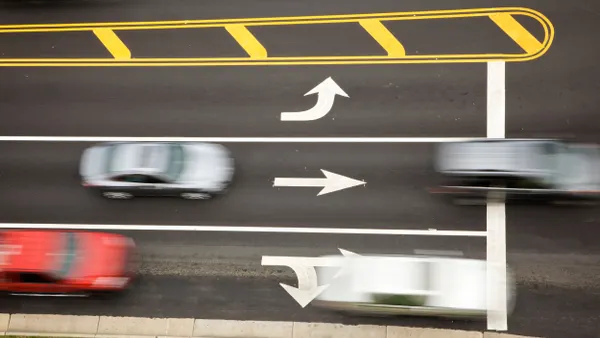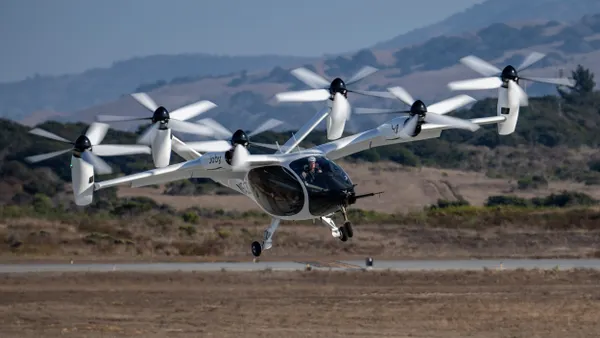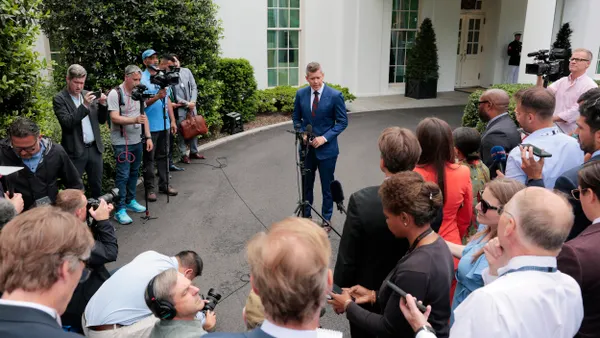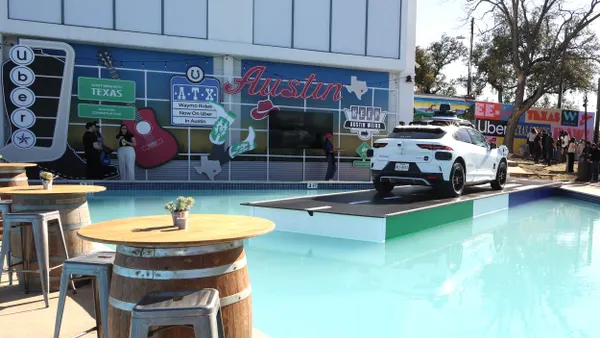Dive Brief:
- Drivers experienced extreme toll prices on new express lanes on Virginia's Interstate 66 from the Beltway to downtown Washington, DC this week. On Monday when the lanes opened, prices peaked at $34.50. Around 8 a.m. on Tuesday, prices for solo drivers using the lanes reached $40, then lowered to nearly $16 after the morning rush hour, according to The New York Times.
- By Wednesday morning, solo drivers faced tolls of nearly $23 during rush hour, indicating that drivers are finding alternate routes. The toll prices depend on volume of traffic and change every six minutes.
- Virginia Transportation Secretary Aubrey Layne told The Washington Post that "no one has to pay a toll" as long as they have another person in the car with them. "This is fair to everyone because everyone has a choice. And that is why we did this. We wanted to change behavior, we don’t have the resources to continue to lay asphalt and have congested roadways," he said. However some transportation officials are now calling on immediate changes to the pricing.
Dive Insight:
The concept of congestion pricing — a tactic to increase toll prices in order to force drivers onto alternate routes and decrease traffic — has been a hotly-debated topic in smart city discussion. Cities like New York and London have toyed around with various congestion pricing scenarios, however they're often restructured due to dissatisfaction from legislators or the drivers themselves. In New York in particular, congestion pricing is now an even bigger debate due to the MTA's state of emergency underground.
In Virginia, Layne's reasoning for the congestion pricing is fairly simple: to decrease traffic and preserve road infrastructure. However Layne's tactic to "impact the entire network" of cars driving to downtown DC during rush hour is not going over well with most drivers and congressional leaders. Some accuse Layne and the Gov. McAullife administration of not offering drivers any warnings prior to imposing the tolls, while others dub the tactic as "price gouging" and call for a cap.
The tolls on I-66 are outrageous. I voted against the plan in 2015 & 2016 when we were promised the highest toll would be $17 roundtrip. $30+ tolls are unfair, especially for those of us with limited east-west travel options. https://t.co/D3rNVUEsoX
— Jennifer Wexton (@JenniferWexton) December 5, 2017
While some cities are seeing more drivers on the roads due to ride-sharing services like Uber and Lyft, it is likely that car ownership will soon decline, leaving those "taxi" services and public transportation as the most common transit options for commuting — which will, in turn, decrease both traffic and emissions. This is a distant reality, however, indicating that congestion pricing in DC, New York and elsewhere will continue to ruffle feathers among legislators.










